As years tick on in our lives, some memories, good or otherwise, stay on top of all others. Being the son of a journalist who was also closely associated with Indian politics for over 50 years, my most vivid memories are of developments in India’s political landscape over the decades. I remember the outcome of each Lok Sabha — the lower house of Indian Parliament — election, starting from 1977. And then there are memories of the 1990s being overcrowded with Lok Sabha elections, of coalition governments that did and didn’t last, of nuclear tests conducted in 1998 and many others. But my oldest and most unforgettable memories are of the Emergency declared in India from June 25, 1975, to March 21, 1977.
Although there was growing resentment towards the Indira Gandhi-led Congress government in the mid-1970s, this infamous event’s immediate trigger was the Allahabad High Court verdict. It declared her election to the Lok Sabha invalid. The court also disqualified her from holding public office for six years.
Instead of resigning as prime minister, she chose to declare a state of emergency and establish her absolute authority over the country. Citizens’ fundamental rights, which included freedom of speech, stood suspended. Newspapers and magazines could only publish what the government approved. The public broadcasting organization Doordarshan and radio station All India Radio, both already run by the government, became propaganda instruments of Indira’s regime. Over 100,000 people, including my father, K.R. Malkani, were arrested under the draconian Maintenance of Internal Security Act (MISA). Under this act, anyone who even spoke out against the government could be arrested and held indefinitely without trial, on the pretext of maintaining national security.
Indira declared the Emergency during our school summer holidays. I was eight years old then. As young children, my ten-year-old sister and I knew that my father would fearlessly write against Indira. The following are all the stories I have recollected and documented from that period.
The night of June 25, 1975
On the night of June 25, our family was sleeping in the courtyard at the front of our house, as we often did during Delhi’s scorching summer. My sister and I slept through the night, unaware that we had had visitors at an unearthly hour.
The next morning, my mother, Sundari Malkani, told us that the police had visited us soon after midnight. They did not enter the courtyard but called out my father’s name from the gate. My parents woke up and learned that the police wanted my father to accompany them to the nearby station. When my mother asked them why, their response was that my father knew the reason. For some support, my mother woke up my older brother, who was 17 then. She wanted to request a neighbor to accompany my father to the station. As she opened the back door to walk to his house, she realized that the police had our home surrounded.
I also learned from my father’s book, The Midnight Knock, that before leaving home, he turned and looked at us children, thinking that perhaps this might be the last time he would see us.
I don’t recall my sister or myself crying upon hearing the news. We probably didn’t understand what it meant for our family. I didn’t know the meaning of the word arrest until my mother explained it to me.
My mother’s incredible bravery
I learned, also from The Midnight Knock, that my father had left a modest balance in his bank account. Meanwhile, on that dark night, my mother was left with two frightening worries. The first was my father’s safety; under MISA, officers would not convey why a person was being arrested, where they were being taken and for how long. The second was our family’s financial uncertainty. Our sole breadwinner was now gone, but we still had to be fed and educated. Throughout that dark period, she was very brave. Despite our family having almost no money at hand, the swim classes my sister and I started that summer continued unabated.
All three of us studied in Modern School, New Delhi’s then-most expensive school, which was also considered one of the best in the country. It wasn’t easy for my parents to afford the fees but they cut other household and personal expenses to give us a good education. Thankfully, my brother had finished his schooling by 1975. Moving my sister and me to a government-run school would have reduced monthly expenses but it would have also compromised the quality of our education and exposure. For our futures’ sake, we stayed at our school. I learned several years later that my mother’s Delhi-based brother was financially supporting her, as were at least two family friends, one in Mumbai and another outside India.
The family car was provided by my father’s office. It could not be sold off to get money to run the house, nor could it be left unused month after month. During this time of uncertainty, my strong mother learned how to drive and took up the additional responsibility of driving the family around. Unlike the summer of 1975, when we used to take a bus to National Stadium for swim classes, the following summer she would drive us and a few other kids from the neighborhood to swim lessons.
Despite the financial hardship, my mother managed to give us little pleasures of childhood as best she could. One of those was when right after swimming, she would occasionally take us for a movie instead of immediately heading home. I recall after one swim practice, we headed to the modest Stadium Cinema nearby, which was playing the Hindi movie, Kalicharan. None of us fancied watching it! Sholay was the most famous Hindi movie running during that period. Although we had much time on our hands during the summer holidays, not to mention the luxury of a car to drive us places, she didn’t take us to watch it — possibly because of its violence and abusive dialogue.
Another time, when I asked for a bicycle, my mother tried to get me a second-hand one. When I saw the poor state it was in, I became very sad. So she bought me a new one, although a cheaper brand than the standard Atlas or Hero bike. I can’t imagine what other expenses she would have compromised on to buy me a new, high-end one.
Visiting various jails
But going swimming and watching the occasional movie were among the sweeter memories from those 21 months. We also visited the jail regularly to spend time with my father. I don’t know how and when my mother learned his whereabouts. He was first sent to a jail in Rohtak, Haryana, about 40 miles from Delhi. My uncle had two cars. Each time we went to visit my father, my uncle would lend us his personal driver and one of his cars, while he would drive himself to his office in his other car.
In the Rohtak jail, all the MISA detainees and their visitors met in a large hall. I did not know anyone else there. In the same crowded venue, my father had pointed out architect and politician Piloo Mody once, whose wife would visit him.
The next “home” for my father was the jail in Hissar, also in Haryana. It was about 100 miles from Delhi. Our first trip there took us a long time. We returned home at about 10 PM.
In Hissar, the rules were more stringent for visitors. We met my father in a small room in the presence of a few jail officers (or perhaps officers sent by the government) whose job was seemingly to listen to everything we said to each other. The seating was limited; during one visit, we were short one chair. Being the youngest visitor there, I sat on my father’s lap. I was quiet and shy by nature, so when I wanted to say something to him, I started talking softly to him. One of the officers objected to this. My mother responded to him saying that “children are innocent” (“bachchay to masoom hotay hain”). But he still wasn’t okay with me saying something he couldn’t hear. I don’t think I completed my sentence at all after that.
The third jail my father occupied was Delhi’s Tihar Jail. I don’t remember much of it at all. On either side of the huge door of the jail were the words, “Hate the sin, not the sinner.” I think it was here that as we waited to enter the jail one day, a large group of prisoners were being taken away in a bus. They were chanting in unison in Urdu, “Shanti Van say aayee aavaz, aaja beti mere paas” (“A voice is calling from Shanti Van — former Prime Minister Jawaharlal Nehru’s cremation ground — come to me, my daughter”). My mother found it amusing.
For the jail visits, my mother would prepare a meal that all of us would eat together. This gave my father a break from jail food.
The jails allowed only two adult visitors at a time. My brother was 17, but the authorities still counted him as an adult. So, when any other adult relative wanted to visit my father along with us, my brother would have to stay home.
Balancing school and jail visits
Jail meetings were held late in the afternoon. To arrive on time, my sister and I had to leave during school hours. Initially, we both were in junior school — which encompasses elementary/primary and middle school — at Humayun Road. But after fifth standard (or fifth grade), she moved to senior school at Barakhambha Road. My uncle’s driver would first come to my school to fetch me, then to my sister’s school and then to our place for my mother and any other family member.
Up until fifth standard, we were not allowed to wear watches in school. So I had no idea what time it was or when I was supposed to wait outside school for my ride. The driver would reach my school and go hunting for me on campus. He would find me only by luck, because I was never looking for him! My sister, by contrast, was responsible and would be waiting outside the school when the driver and I arrived.
Once during a parent–teacher meeting, my sister’s teacher said she was taken aback when my sister sought permission to visit our jailed father. She said she had initially wondered what crime he had committed! But upon hearing the situation, the staff began showing thoughtfulness toward us and respect for my father.
Only one experience during this period was different. My Hindi teacher, Mrs. Sahai, a well-known terror, once asked the class to write an essay on Indira as our homework. When my mother saw the assignment, she was furious and asked me not to write it. The next day, I received a white card from the teacher — a severe punishment in my school, and the only time I ever received one. I started crying in class but she still wanted me to write the essay. Pressured, I managed to write a page, which is far shorter than a conventional essay.
I narrated the happenings to my mother. As I left the room, her neighborhood friend dropped in to meet her. My mother explained what happened, crying. It was also the only time I saw her cry during those 21 months.
We will never know if the topic of the essay was the teacher’s choice or mandated by the government. It may not have been the latter, given that my sister did not get the same assignment. If this was the teacher’s own choice, I can’t imagine what purpose it served for anyone, including her.
Given how my family was impacted by Indira’s Emergency, it was ridiculous of Sahai to punish me for not completing that assignment. A few days later, she tried to do damage control by telling me that a teacher is the children’s mother in school. That made me think: Should the “mother in school” do something that makes the real mother cry? Of course, I didn’t dare ask her that.
My father, a well-read prisoner
My father was an avid reader and used to spend most of his waking hours at home, reading. His favorite book was Choose Life: A Dialogue (Echoes and Reflections), a dialogue between scholars Arnold Toynbee and Daisaku Ikeda. A few times during my childhood, he had cited the saying, “A fool lends a book, and a bigger fool returns it!”
Being locked in jail had a silver lining: It enabled him to spend his time as he pleased. I imagine he spent a lot of the time in open discussions about the government, something Indira could do nothing to stop, given that the “offenders” were already in jail. He would also play badminton — we had given him one of the racquets from home — and read a lot.
One of my Pune-based cousins owned a bookshop called Modern Book Stall. My father used to give my mother names of books he wanted to read, which she would send to my cousin. Whenever he sent us the books, we would take them to my father.
During one of our visits, he had finished reading all the books he had in jail, and we had no new one to give him. I generously offered him my The Adventures of Tintin comic book, which I’d brought to read in the car. He accepted the offer. He had the habit of marking interesting sections in the margins of books he read. I don’t remember if he found anything in Prisoners of the Sun worth marking, but he wrote down a few words on the last page, which he wanted to explain to me the meanings of. The first among those was “Inca.”
I don’t know how much of the story he understood, given that he hadn’t read the preceding comic, The Seven Crystal Balls. But then again, neither had I.
The bored spy in our neighborhood
My mother was sure our phone was being tapped. She also spotted someone standing some distance from our house and watching our place all day. Presumably, the government hired this person to keep surveillance on our visitors. Every journalist with a spine was already in jail, as were Opposition — political parties not supporting the ruling cabinet — leaders and tens of thousands of Opposition workers. So, this person clearly wouldn’t have anything interesting to report.
Possibly bored with the lack of action, he once asked a neighbor’s domestic worker — informal workers in India who perform household tasks for clients — to keep an eye on our place while he took a break. The domestic worker then informed the lady of the house of this conversation. The good neighbor promptly came and told my mother about it, confirming her suspicion.
A meeting with Indira that didn’t happen
One person who used to visit our house during the Emergency was a man named Bhikshu (ordained Buddhist monk) Chaman Lal. I have no recollection of who he was or what he looked like. Some years after the Emergency, my father narrated one incident related to him.
On one of his visits to our home, he told my mother that he was going to meet Indira and tried to convince her to accompany him, saying that she did not need to say anything during the meeting. My mother wasn’t sure if this was right. At that same time, her brother happened to drop in at our place. He heard this suspicious-sounding invitation and advised my mother to decline it.
While narrating this story, my father said it was a very wise move. The visit could have been projected by the media as a meeting in which my mother apologized for my father’s stand against Indira — something he would never have done.
My mother, an active rally-goer
One Sunday evening, a large rally was organized, possibly by some Opposition leaders who were released from jail early. My mother drove to the rally and took a few interested people with her. She said it was a very well-attended one. While the rally was on, a helicopter hovered over the venue, possibly to assess how big the anti-government/Emergency movement was. They organized a second rally for the following Sunday.
Through the ‘70s, Doordarshan was a drab affair — we’d rarely switch the TV on. But every TV-owning household would watch the movie that aired on Sunday evenings, however boring it may have been that week. But the station announced unexpectedly that it would broadcast the relatively new movie, Bobby, on the evening of the second rally, instead of a much older movie, which I remember being Waqt. It seemed a desperate attempt by the government to prevent people from attending the rally. But it worked! My mother mentioned at home that the crowd this time was much smaller than in the first.
India’s growing resentment
As the oppression continued, the populace’s resentment of Indira grew. While people did not dare speak against her outside of private conversations with trusted people, I remember an incident that demonstrated the popular acrimony. Along the road leading to Minto Bridge in Delhi, a very long billboard had been put up. It had Indira painted in the center, with a vast number of small, faceless figures behind her, implying she was leading the country’s masses. I used to see it every day as my school bus passed from the nearby outer circle of Connaught Place, New Delhi’s business hub.
One day, my mother learned that someone had smeared tar on Indira’s face on that billboard. I saw the spectacle on my busride the next day. Before long, the tar was scraped off and her face painted back on the billboard. Whoever the “tartist” was, it was incredibly brave of them to do so, knowing any person could well have spotted them and got them arrested.
And then there was this joke I heard in school. I shared it with my mother, who had a good laugh over it. It went like this: Rajiv Gandhi (Indira’s older son, who was a pilot then) is flying Indira and Sanjay Gandhi (Indira’s younger son) in a plane. As they fly over a village, they look down at it. Indira says, “If I throw ten rupees down from here, that will make the villagers very happy!” Sanjay betters her proposal and says, “If I throw 100 rupees down from here, that will make the villagers happier!” Rajiv betters both their proposals and says, “If I throw both of you down from here, that will make the villagers the happiest!”
As time passed, some prominent Opposition members were released. Shri L.K. Advani and Shri A.B. Vajpayee were among them. After his release, one Opposition leader went to meet Indira. He asked her about Nana Deshmukh’s and my father’s release. She said my father would be released soon, but did not commit to Deshmukh’s release. However, from what I recall, he was released soon after, while my father continued to wait in jail. We will never know for sure why my father was among the last to see release, given the hardship we — his family — were enduring. One can only assume it was driven by personal hatred.
Election day: March 16–17, 1977
Ultimately, elections were announced. My mother was very active on election day. She drove several elderly people in the neighborhood to the polling booth and back. As the day progressed, she also went to some neighbors’ homes reminding them to go and vote. She had a very close friend two houses away from ours whose husband was an unwavering Congress voter. As my mother was visiting other houses in the neighborhood, she asked my sister and me to go and remind her friend to vote. Innocent of the reason for her not going there herself (I suppose she was hurt at them not committing to vote for the Janata Party), we both went to their place. The friend’s husband looked slightly surprised on hearing our message, possibly thinking it was nice of my mother to remind them despite his political preference.
My father’s release
The election results were announced over a few days. For us kids, it was a novel and delightful experience that Hindi movies were being broadcast for a few days in a row. The unfolding election results — what little we understood of them — would have added to the delight.
From what I recall, my father was released only after the government’s defeat was announced. My mother and a few neighbors went to Rohtak to bring him home. I think my uncle’s car and driver were unavailable that evening, and one neighbor had volunteered to drive our car. A huge number of people visited us that night to meet him.
The next morning, I told the other kids at my school bus stop that my father had been released. At last, it had happened!
A quarter-century after the Emergency was lifted, when my father lived in the city of Pondicherry, a close friend of the Nehru-Gandhi family visited him. During their chat, my father asked him what had made Indira finally lift the Emergency. His insight was that major democracies in the world had strongly objected to the imposition of the Emergency in India. He also mentioned that the jailing of Gayatri Devi, the Rajmata (“Queen Mother”) of the royal family of Jaipur had particularly offended the British royal family. Indira eventually succumbed to international pressure.
The Emergency can’t be forgotten
The majority of India’s population today was born after the Emergency. They know little, if anything, about that period. However, as the famous saying goes, those who do not learn from history are doomed to repeat it.
While one can safely assume that no political party today will impose the kind and extent of oppression the Emergency did. But since the Emergency, and indeed, even in the decades preceding it, the Indian government has imposed or attempted to impose curbs on its people’s freedoms. A particularly perverse attempt was the Defamation Bill of 1988, introduced by the same party that imposed the Emergency. The decade of the Congress-led United Progressive Alliance wasn’t particularly supportive of free speech. On the other hand, similar accusations have been hurled by the Congress against the Union Government led by Indian Prime Minister Narendra Modi.
Fortunately, the present government has ensured greater visibility of this period by declaring today, June 25, as Samvidhan Hatya Divas (“Day of murder of the constitution,” or Constitution Murder Day). Additionally, over the decades, several books — from the late ‘70s to a few years ago — have been written on the Emergency. Notable among these are B.N. Tandon’s PMO-1 Prelude to the Emergency, Coomi Kapoor’s The Emergency: A Personal History, A. Surya Prakash’s The Emergency: Indian Democracy’s Darkest Hour, my father’s The Midnight Knock, Janardan Thakur’s All the Prime Minister’s Men and Advani’s My Country, My Life. Interestingly, aside from the last (which has a chapter on the Emergency), each of these was published when Congress was not in power in New Delhi.
A deeper understanding of the Emergency will give us context to understand the present better. That dark chapter of history must be discussed and documented extensively for the benefit of future generations.
[Lee Thompson-Kolar edited this piece.]
The views expressed in this article are the author’s own and do not necessarily reflect Fair Observer’s editorial policy.
Support Fair Observer
We rely on your support for our independence, diversity and quality.
For more than 10 years, Fair Observer has been free, fair and independent. No billionaire owns us, no advertisers control us. We are a reader-supported nonprofit. Unlike many other publications, we keep our content free for readers regardless of where they live or whether they can afford to pay. We have no paywalls and no ads.
In the post-truth era of fake news, echo chambers and filter bubbles, we publish a plurality of perspectives from around the world. Anyone can publish with us, but everyone goes through a rigorous editorial process. So, you get fact-checked, well-reasoned content instead of noise.
We publish 3,000+ voices from 90+ countries. We also conduct education and training programs
on subjects ranging from digital media and journalism to writing and critical thinking. This
doesn’t come cheap. Servers, editors, trainers and web developers cost
money.
Please consider supporting us on a regular basis as a recurring donor or a
sustaining member.
Will you support FO’s journalism?
We rely on your support for our independence, diversity and quality.


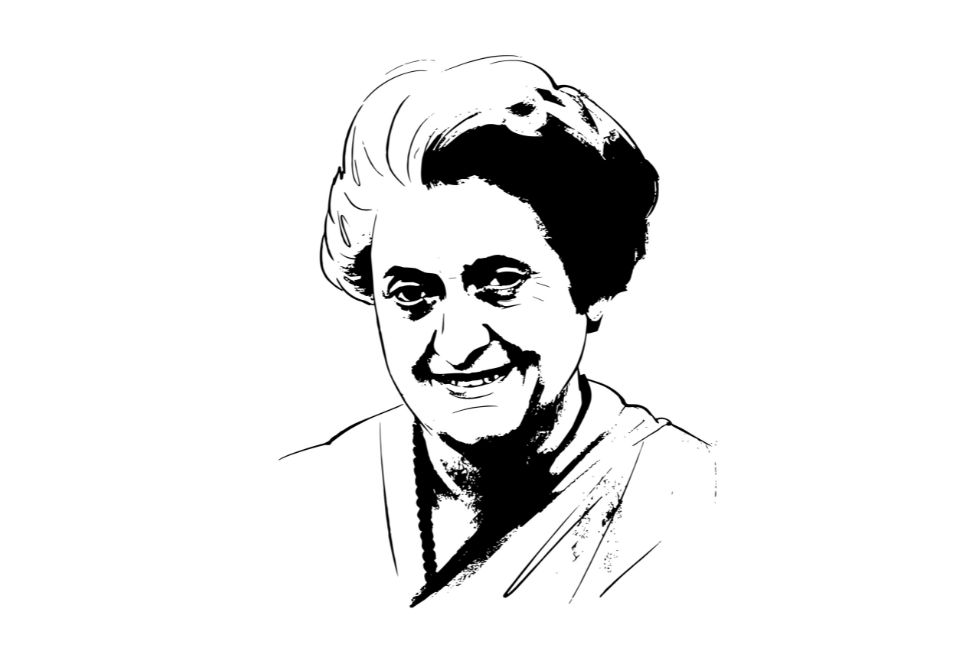
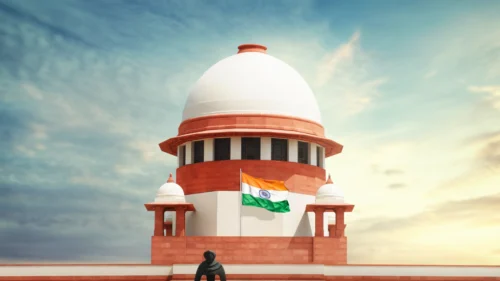
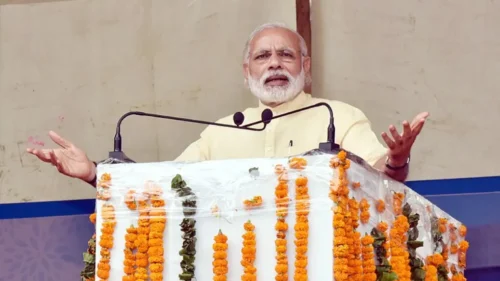
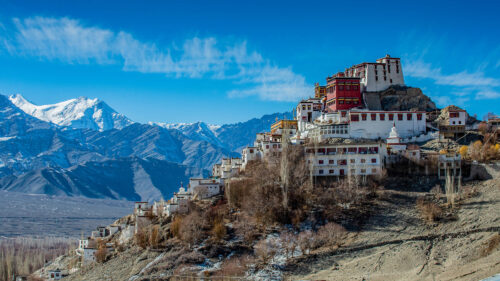

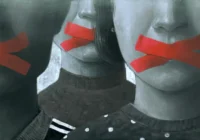



Comment